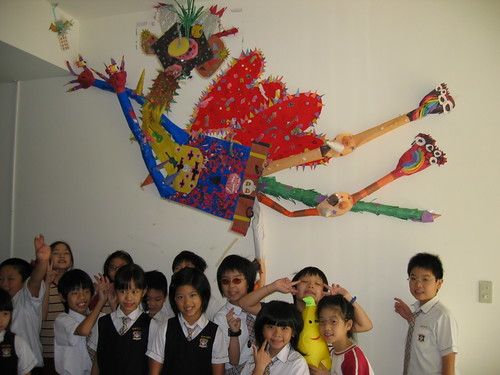
I came away from the recent
Educon2.1 conference in Philadelphia with a kaleidoscope of impressions that make me hopeful about where education is heading (and I’ll be sharing some highlights in an upcoming
Spiral Notebook post). But as I’ve been reflecting on what I saw and heard during those three days at the Science Leadership Academy, I find myself yearning for an update.
So,
Principal Lehmann, what’s up with the prom bear?
This takes a little explaining. When colleague Jane Krauss and I arrived at SLA, we were greeted by two student tour guides. We couldn’t have asked for better narrators than Freda and Brett. They were drawn to this magnet school by the promise of challenging academics, energetic teachers, pervasive technology, and a world of possibilities. Both had the chance to travel to Liverpool, England, last year as part of a student exchange.
In this hothouse environment, SLA students expect to work hard. But their academic life is not just an exercise or simulation. Real-world projects get them accustomed to investigating their environment, thinking critically, and addressing perceived wrongs.
So when Freda noticed that a fundraiser for the school prom involved selling small stuffed bears, she got curious. Turns out the bears were manufactured in China. Knowledgeable about fair trade, she questioned whether a bear that might have come from a sweatshop was a good mascot for her school to be promoting.
And here’s where the prom story gets really interesting. Freda told us she fully intends to start a fair-trade initiative at SLA. But she decided to wait a few weeks to get started because she didn’t want to raise a ruckus on the eve of Educon2.1. “I think it might have stressed out our principal,” she said. Learning is serious business at SLA, but so is caring.
A couple days later, Jane and I led an Educon conversation about meaningful projects, the kind that prepare students to make a real difference in their communities. (Video and materials from the session are posted
here.) That’s what SLA seems to be doing every day, across the curriculum—and beyond.
 Midnight Chickadee at Kang Chaio Bilingual School, Taipei (hat tip to Terry Smith)
Midnight Chickadee at Kang Chaio Bilingual School, Taipei (hat tip to Terry Smith)


